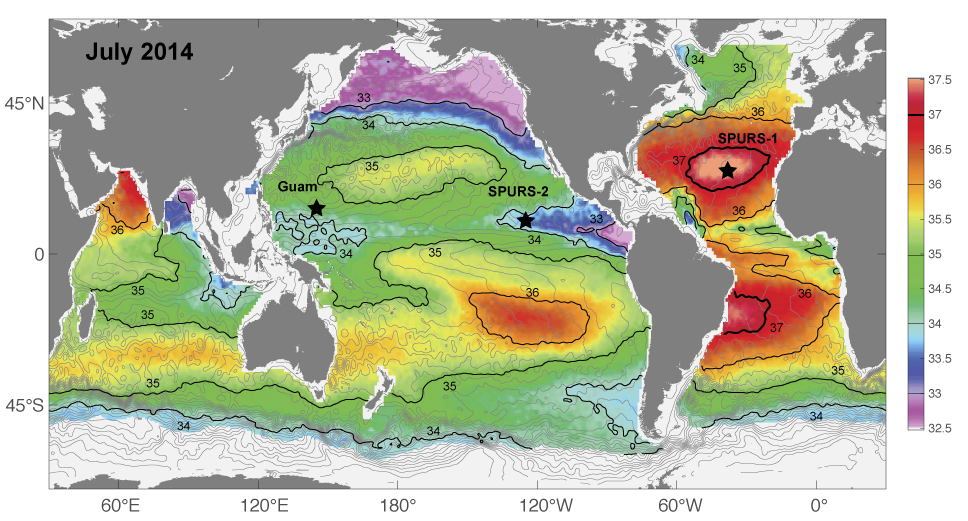The overall goal of our project is to develop tools and strategies to better measure the structure and variability of upper-ocean salinity in rain-dominated environments. Specifically, our objectives are to analyze simultaneous observations of ocean salinity profiles and rain, to determine the spatial and time variability of precipitation in several regions, the spatial and time variability of the surface freshwater anomalies, and how freshwater anomalies depend on rain rate vary when the history of the rain rate is taken into account.
Using dataset collected in several different regions, we seek to understanding errors in the measurements of salinity from Seagliders (measurement error) as well as gain an understanding of the sampling error caused by a varying salinity field sampled a single profile (e.g., Argo) and satellite derived estimates.
Looking ahead, we are developing tools to be more efficient at doing adaptive sampling of rain events, using satellite and local information for adaptive sampling from autonomous platforms and adaptive glider navigation and profiling.
